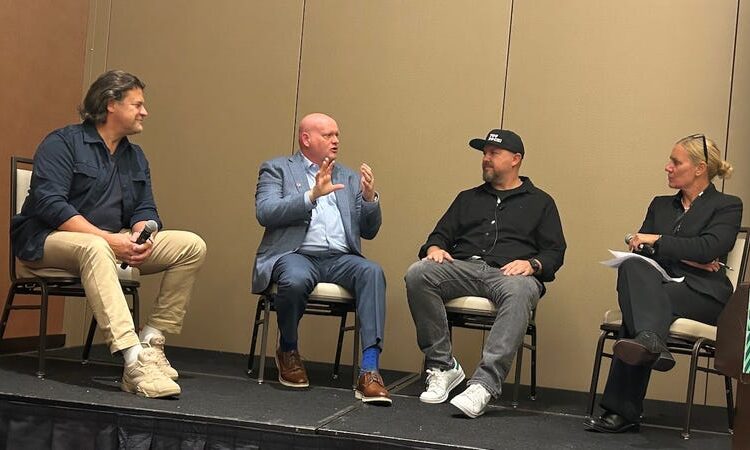You can find original article here Nrn. Subscribe to our free daily Nrn newsletters.
Labor is always a challenge for restaurateurs, but the past few years have been especially hard. The pandemic turned restaurant employees into essential workers, and that was followed by the “Great Resignation” of 2022 when the labor force quietly rebelled and didn’t want to go back to hourly jobs.
The historic labor shortage led many operators to focus even more on their staff, and reinforced the importance of company culture.
That’s how Alicia Kelso, executive editor of Nation’s Restaurant News, teed up a conversation about culture with three experts: Jess Elmquist, chief people officer of coffeehouse chain Dutch Bros; Steven Sturm, chief operations officer of polished casual group Firebirds Wood Fired Grill; and Amir Mostafavi, founder and CEO of açaí bowl concept South Block.
Elmquist said culture is at the heart of the Dutch Bros experience.
“We’re actually not in the coffee business; we’re in the relationship business and our product is love,” he said. The chain only hires for one position, what the company calls “broistas” — a play on baristas — whose job requires them to learn how to make sometimes complex and detailed drinks, but at the heart of their job is making their customers happy, and all the panelists agreed that customers can only be as happy as their employees.
Sturm said Firebirds is really a relationship business. “We just happen to serve really good food and cocktails.”
Mostafavi said that when he founded South Block in 2011, the ideas of culture and mission weren’t on his radar.
“I was just trying to pay the bills,” he said. But after the concept grew from three locations to seven in a year, he realized he “wasn’t really happy with the culture of the company.”
He said that’s a good size to assess a company’s culture, as processes and training start to get systematized.
He started hiring not based on prospective employees’ experience, but on their passion and purpose, and buy-in to South Block’s mission, “which is to make people feel awesome one block at a time.”
He said that most people want a sense of purpose more than a job.
“You can give them a sense of purpose by bringing them into your vision and making them part of that … I think that’s what everyone’s looking for.”
But of course it’s not just about making your employees feel good.
“If you lead with people, it will translate into profit for your business,” he said, because employees will do what’s necessary to make the business succeed.
“You cannot scale at a pace that outgrows your culture,” he added.
At Dutch Bros, which has grown to 1,083 shops, “culture is who we are,” Elmquist said. “We hire for one job (Broistas), and invite them into an amazing career opportunity.” The company only promotes from within, and that helps establish strong corporate culture.
He said he’s looking for “humble, hungry, intelligent, smart people,” who want to make a difference in the world.
The investment in culture “comes back tenfold in the value that we give to our customers,” he said.
Sturm agreed that success starts with who you hire, although Firebirds unlike Dutch Bros, does hire for multiple positions, the kitchens are located in the dining rooms, which helps bridge the common cultural divide in restaurants between front-of-house and back-of-house.
Still, you need to hire the right people for the right positions, and then model the culture that you want.
“It can’t just be catchphrases. That’s not culture. Culture is what you model, live, eat, breathe every single day,” he said.
And it evolves: Corporate culture changes over time, and it’s important to see that culture through the lenses of managers and hourly employees.
“We’re constantly looking into it,” he said, adding that, based on feedback from managers, Firebirds is working on expanding personal time off for hourly employees — doubling it, in fact, based on feedback from managers.
He added that many of those managers, as well as executives in the home office started as hourly employees, proving that there’s opportunity to grow within the company.
Mostafavi agreed that company culture evolves and, as a leader, you have to manage it.
“It’s not going to be 100% perfect, but you can focus on it 100% of the time,” he said, and base your decisions on what will make employees happy.
“If you lead with people, that’s the result.”
The discussion was part of CREATE: The Event for Emerging Restaurateurs and was sponsored by Texas Pete.
Contact Bret Thorn at [email protected]
Follow him on TikTok and Instagram: @foodwriterdiary





